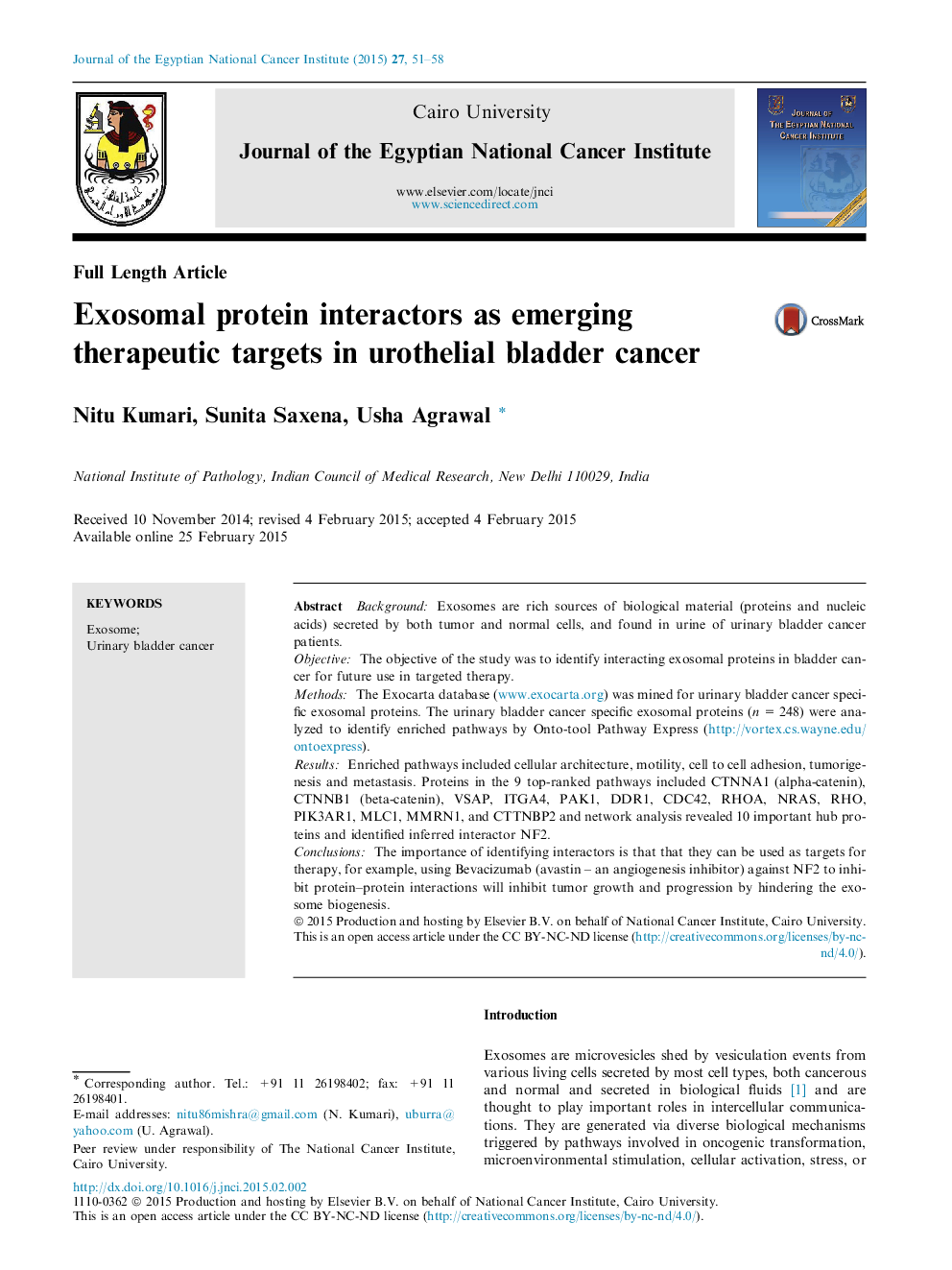| Article ID | Journal | Published Year | Pages | File Type |
|---|---|---|---|---|
| 3988993 | Journal of the Egyptian National Cancer Institute | 2015 | 8 Pages |
BackgroundExosomes are rich sources of biological material (proteins and nucleic acids) secreted by both tumor and normal cells, and found in urine of urinary bladder cancer patients.ObjectiveThe objective of the study was to identify interacting exosomal proteins in bladder cancer for future use in targeted therapy.MethodsThe Exocarta database (www.exocarta.org) was mined for urinary bladder cancer specific exosomal proteins. The urinary bladder cancer specific exosomal proteins (n = 248) were analyzed to identify enriched pathways by Onto-tool Pathway Express (http://vortex.cs.wayne.edu/ontoexpress).ResultsEnriched pathways included cellular architecture, motility, cell to cell adhesion, tumorigenesis and metastasis. Proteins in the 9 top-ranked pathways included CTNNA1 (alpha-catenin), CTNNB1 (beta-catenin), VSAP, ITGA4, PAK1, DDR1, CDC42, RHOA, NRAS, RHO, PIK3AR1, MLC1, MMRN1, and CTTNBP2 and network analysis revealed 10 important hub proteins and identified inferred interactor NF2.ConclusionsThe importance of identifying interactors is that that they can be used as targets for therapy, for example, using Bevacizumab (avastin – an angiogenesis inhibitor) against NF2 to inhibit protein–protein interactions will inhibit tumor growth and progression by hindering the exosome biogenesis.
